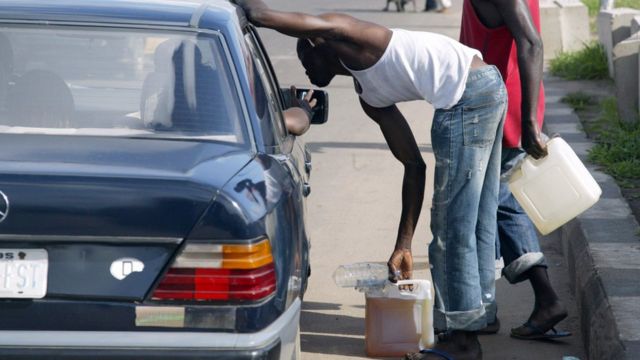As fuel scarcity persists across the country, motorists in Lagos have increased their fares for commuters.
With some level of anxiety and confusion as fuel scarcity appears in the nation’s commercial capital, Lagos residents have since Monday, February 7, 2022, suddenly experienced a sharp spike in their transport fares.
With an estimated population of almost 20 million people, the roads play host to over five million cars and 200,000 commercial vehicles. The panic buying, which subsequently resulted to fuel scarcity, began last weekend when unusual long queues of vehicles at various filling stations in Ikoyi, Victoria Island, and Lekki were noticed as residents spent longer periods trying to buy petrol.
While many of them attributed the panic buying to increased demand for fuel due to power outages following a recent fire incident that led to the shutdown of Nigeria’s largest power plant, Egbin, from the national grid, the long queues persist, such that motorists have turned to the black market to make their purchase for business purposes.
When approached by BizWatch Nigeria, a motorist that operates within Ajah and CMS, revealed that he was left with no other choice than to increase his fares for passengers.
According to him, he had bought petrol from a black market merchant, which was expensive when compared to what would be sold for him at pump price.
“How do you expect me to make a profit from buying a litre of petrol for N300?” the motorist who spoke on a condition of anonymity queried, as he said “the fare from Ajah to CMS, which, ordinarily, was N400, had to be hiked to N1,000.”
Corroborating the motorist’s claim, a commercial bus driver, Waheed Okunola, who operates between Ojota and Berger environs in the state, told our correspondent that he had to increase his fares from N200 to N300.













